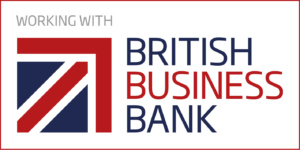Following the Chancellor’s recent Budget announcement, Angus Dent gives his comment on what it means for struggling UK businesses. Read his thoughts here.
Tag: smes
Are the big institutions embracing the wisdom of Crowdlending?
The fallout of the stress tests has generally been good news for the Banks. As I discussed in my earlier post, Standard Chartered and Royal Bank of Scotland, however, struggled and only got over the line by promising to keep back more capital. RBS announced that they had shed some of their riskier assets, including Irish property loans to the tune of £1.62 billion that seemingly had the potential to bring rich reward; the spectre of the burst of the Irish property bubble clearly enough to put the bank off. Therefore, it isn’t exactly a surprise that RBS recently announced plans to lend money to mid-sized businesses in conjunction with three global asset managers, namely AIG, M&G and Hermes Investment Management. The partnership will aim to provide finance to between 75 and 80 mid-sized businesses with loans ranging from £25 million to £100 million.
The partnership will allow RBS to benefit from extra due diligence carried out by the asset managers, as well as allowing the bank to further diversify risk. The funds benefit from exposure to an established market that was previously restricted to traditional finance providers. However, the link comes as a result of asset managers increasingly acting as “shadow” banks with companies approaching them for finance. The new partnership will see RBS continue to carry out the brunt of client negotiation directly with the borrower, whilst the asset managers carry out their own due diligence and credit analysis.
The primary (only) benefit to the borrower would be the consolidation of parties to negotiate with; however I would reason that dealing with scrupulous, profit driven asset managers alongside the sluggish, outdated bureaucracy of the banks will hardly speed the process up for borrowers. The relationship is aimed at a niche group of businesses that are already backed by private equity companies, so the move to “Crowdlending” is certainly a tentative, experimental one. It does nothing to combat the issue that the banks aren’t lending to SMEs, the lifeblood of the British economy. But it does show that the banks are willing to share their clients with other finance providers to ensure that a solution is available.
This is all very good news for Peer to Peer Crowdlenders who aim to fill the SME finance gap: expect to see more partnerships with banks emerge that allow banks to continue to lend to small businesses to the extent that their capital resources allow, with specialist crowdlending platforms plugging the gap. Indeed, only yesterday, AltFi reported the news that ThinCats had sold a 73.4% stake in the company to ESF Capital, a European specialist investment firm, in the process appointing ESF Capital CEO John Mould as ThinCats CEO. The view here is that the linking with an investment firm will bring significant new money to lend SMEs, and Mould’s appointment will certainly facilitate that. After all, Mould is the former COO and CFO of the aforementioned Hermes Investment Management- RBS could be the first of the “Big Four” banks to start lending across a Crowdlending platform to UK SMEs; and in all likelihood it will be followed by the others.
Crowdfunding the Gaming Industry
An article in the Financial Times today highlighted the difficulty that the UK’s creative industry has had in securing funding from banks since the government started to advocate investment into the tech start-ups. The article specifically makes reference to the government-backed British Business Banks’s investment in a private equity fund worth £40 million that focuses on nascent media and gaming companies. Britain certainly can boast a range of success stories; King Entertainment, manufacturer of the omnipresent (and entirely vacuous, in my view) Candy Crush, was sold for $5.9 billion.

The majority of gaming companies however, fall into the SME bracket, and won’t suitable for the PE funds: the aforementioned fund run by Edge Investments will only back between 12 and 15 companies. Moreover, they have fallen victim to the bank’s decision to withdraw funding to small businesses; software companies are particularly vulnerable to “computer-says-no”-ism of the banks. Some of the biggest success stories of the past are subsidiaries of much bigger companies but continue to operate under their own brand name. For instance, Sports Interactive Ltd, the creative studio behind the Football Manager games, were able to benefit from the support of Japanese giant Sega. The company was initially loss making, however the profits have steadily increased to over £3 million last year.

Yet most games manufacturers are run by enthusiasts who aren’t happy to just sign over all of the equity in their business to a big corporate. Reward-based crowdfunding has been a fantastic way to exploit the willingness of fans to take a small portion of equity in a games manufacturer along with “tangible assets” such as a copy of the game, and the less tangible reward of increased standing within the game itself. The business is able to hold onto most of its own equity but can still receive funding. See my article on the success of Star Citizen for an example of the potency of gaming fans to drive a company’s growth projections through the roof. The article can be found here: https://www.archover.com/demystifying-crowdfunding-part-1-donation-and-reward-based-crowdfunding/.
Yet there is every chance that a novel concept without an entrenched fan base could go unfunded. However, there is still the option of debt-based P2P lending if directors and major shareholders are unwilling to dilute their share in the company. Enthusiasts could invest in the business without the risk of just an equity stake, and established SMEs could continue to grow the business organically without the need to handover their brainchild to a corporate. Established companies with a debtor book to match, often funded by sponsors hoping to flog their product into the subconscious mind of the avid gamer, have consistent revenue streams from blue-chip sources. Sports Interactive, after all, had over £20 million worth of debtors in 2014, up from £16 million in 2013. These debtors were made up of retailers and sponsors keen to have their brand represented in the game. P2P lending could be the answer to the next generation of gaming companies looking to follow in their footsteps.
B Corp: the cost of responsible Corporate Governance for SMEs
[avatar]
An article written by Edward Perry, founder of the frozen meal retailer COOK, caught my eye over the weekend and got me thinking about the delicate balance between responsible corporate governance and growing a young business. Perry uses the article to extol the virtues of a B Corp certification, both for his business and the wider corporate community. The B Corp certificate is awarded to for-profit businesses that can prove that they meet high standards of social and environmental sustainability. The assessment is solely undertaken by B Lab, a global non-profit organisation, meaning that the certificate doesn’t carry any legal weight in the UK.
Perry’s business is itself an interesting one; despite a turnover of over £35 million and a very healthy profit margin, COOK strives to retain a small business feel. Perry has said in the past that he “would rather crawl naked over broken glass than sell to supermarkets”, and his frozen meals to this day can only be found in farm shops, independent stores and the company’s own franchised line of shops. Yet COOK can clearly afford the vigorous rigmarole of getting B Corp certified, and as a manufacturer of frozen food, his business needs the positive publicity generated by supporting sustainability. As the general public become more conscientious when choosing their food, it pays for brands such as COOK to show that they make every attempt to source local, organic produce and pay their staff the living wage. COOK has seen a positive bounce from the B Corp certificate, and not only because of the effect of the media exposure caused by Perry’s vocal support of responsible corporate responsibility. The Kent-based company’s B Corp status is a major part of their brand identity in an attempt to eschew comparisons with competitors, particularly the controversy-dogged supermarket chains that have been hit by scandal after scandal in terms of both corporate governance and food quality, such as the scandalous widespread use of horse meat and Tesco’s ongoing struggles in the board room.
However, should SMEs with tight margins, that are looking to grow, bear the considerable expense of becoming a certified B Corporation? Responsible corporate governance itself comes at a cost without the added effort and expense of a semi-formal certificate that requires considerable excellence. I agree that it is beneficial for small, growing businesses to operate in the best interests of its stakeholders. Setting up an equitable profit share for all stakeholders instead of traditional partnership structure is a good start, but some of the other B Corp requirements are not as feasible for SMEs. Adopting the living wage rather than the minimum wage, introducing employment programmes for disadvantaged communities and having an active working relationship with local charities are all requirements for a B Corp licence, yet are hard to implement from the outset for SMEs, particularly those that find access to any finance is blocked.
A cynic would say that any revolution in corporate governance will only come with changes in UK law, and any changes will affect SMEs with tight margins the most. It would take a brave CEO to take on the added financial burden of a Corp B without leeway on the balance sheet to cater for it. Moreover, the tangible effects of a certificate that, without any legal meaning, is a badge as much as anything else, are unlikely to be seen so clearly in a company that operates outside sectors such as retail and food, for example. More responsible corporate governance needs outside-the-box thinking from CEOs and a firm nudge in the back from the Government to ensure that UK SMEs can afford to contribute beneficially.
For what it’s worth, in my opinion the COOK meals are delicious; running a company sustainably, responsibly and profitably has had no negative effect on the quality of their produce!
